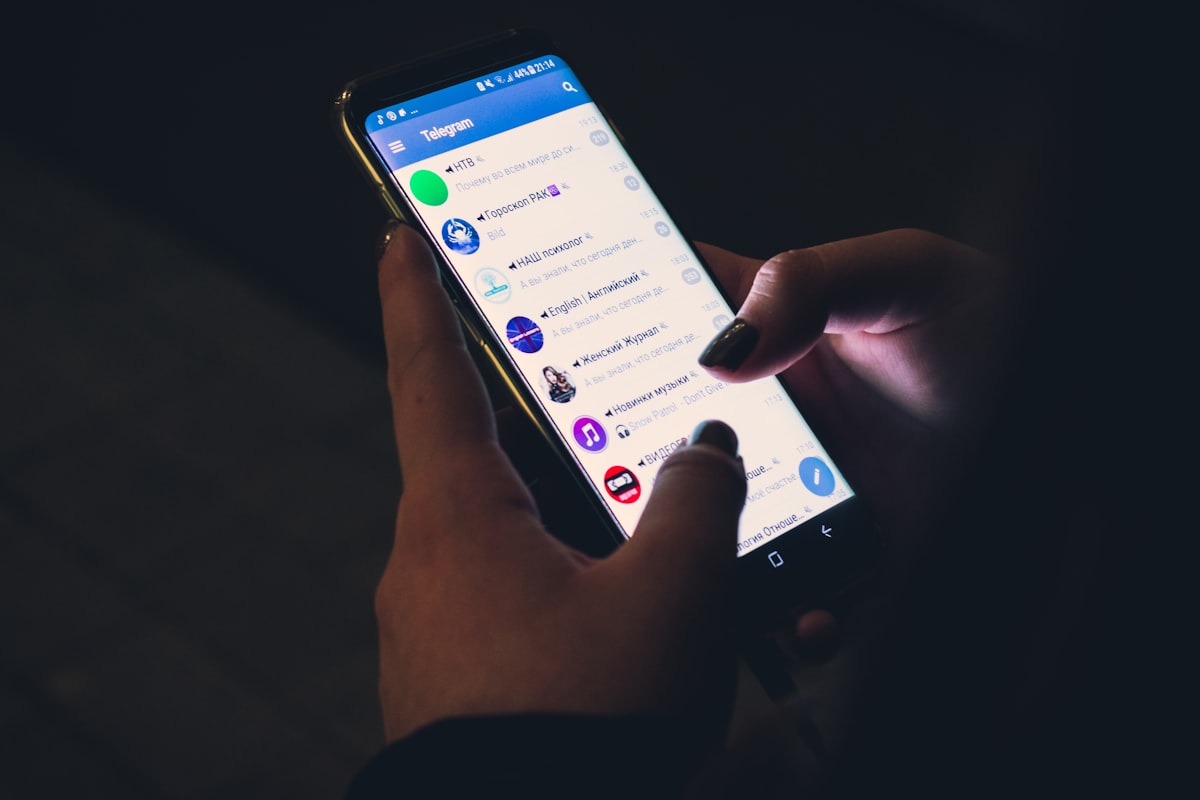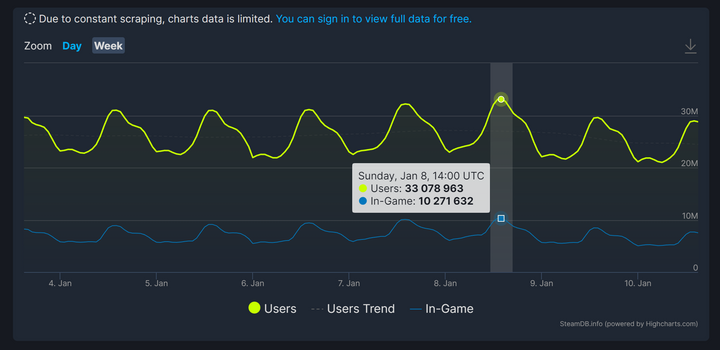The Return of the GOOD OLD DAYS (of Instant Messaging)
The dystopian hellscape of major tech gatekeepers only *starts* with proprietary chat applications. The EU is doing something about it.

Do you remember the good old days? I do. I remember back when I had a single buddy list of my closest friends running in a native application on my desktop. I used Trillian for the longest time, and then — when I switched to Linux — I used Pidgin. Y'all remember Pidgin? Goodness. That feels like another lifetime.
These apps, Trillian, Pidgin, Empathy, heck, even the likes of MSN Messenger — would allow you to sign in to multiple chat services like AIM, ICQ, Facebook Messenger, Google Chat, and others. Mind you, this was an era before we had single sign-on, before oAuth gateways were all the rage, and before anyone had heard of RESTful APIs... or even asynchronous HTTP requests in the browser for that matter.
Yet enterprising developers were able to build a user experience which unified disparate messaging services into a single application. And it mostly just worked without any hassle.

You'd sign in to your AIM account and your ICQ and you'd be able to chat with your friends on both services. You'd see all your friends in a single buddy list. You'd get notifications from one app. Chat windows appeared the same across whichever service you were chatting through. And then when your one weird friend who used MSN Messenger gives you his screen name, you'd just make an MSN account and add it to your chat app. Then you have all your friends across AIM, ICQ, and also Brett all in one buddy list. In one app. It was simply delightful. And I've fantasized about those days.
Yet somehow, today in world of APIs and standardization, OAuth gateways and access tokens, ActivityPub and machine learning, we have arrived in the hellscape that is these hundred or so proprietary, gatekept chat applications. iMessage, Wire, Signal, Telegram, Kik, Snapchat, Discord, WhatsApp, Slack, Microsoft Teams, and yes, Facebook Messenger.
Most of these chat applications have the same features. They work almost identically at at least the surface level. Many of them have end-to-end encryption, file transfers, group chat, and the other stuff we've come to expect. Voice and video calling built atop common web standards. Yet NONE of them are interoperable with each other. Even when a number of them were developed on top of the free and open source XMPP protocol.
So when your one weird friend who only uses Wire gives you their username you can't just make an account and sign in through Pidgin. Instead, you have to go download the app on your phone and on your desktop and have yet another app you don't like or and maybe even don't trust that's probably running on Electron, and continusously running in the background.
So now you have Telegram, and Signal, and Discord, and Microsoft Teams, and Slack, and Wire all wasting extra CPU cycles on your machine, thereby unnecessarily edging us closer to global climate catastrophe.
Well, the EU is be working on legislation to force tech companies to stop the stupid crap of non-interoperable chat clients... among other things.
This week in the European Union, a new bill — Digital Markets Act — has been adopted as a draft law. This is huge as — at least in theory — it could compel big players like Facebook, Apple, Microsoft, and other feudal tech Lords to lower the drawbridges which keep their third-party chat clients out of fair competition and force them to interoperate like they should. Just like the good old days. (See? It all came back around!)
Now, notably, this legislation isn't exactly focused on chat clients specifically. Instead, the new law is meant to curtail anti-competitive practices of so-called "gatekeeping" platform holders. Quote:
The draft law blacklists certain practices of large platforms and enables the Commission to carry out market investigations and sanction non-compliant behaviours.
Behaviors spelled in a particularly European way.
Okay. So what does that mean?
To put it simply, the EU rightfully believes that tech companies are creating an atmosphere of not just anti-competitive but completely unfair business practices and Members of the EU Parliament are looking to curtail those behaviors.
The proposed regulation will apply to the major companies providing so-called “core platform services” most prone to unfair practices. These include online intermediation services, social networks, search engines, operating systems, online advertising services, cloud computing, and video-sharing services, which meet the relevant criteria to be designated as “gatekeepers”. [Also to include] web browsers, virtual assistants and connected TV.
Wow. That sounds like strongly targeted legislation that might actually be able to make a difference. So what does the law actually propose to do about all this?
Identifying Gatekeepers
Companies that provide "core platform services" in at least three EU member countries, have at least 45 million monthly users, and at least 10,000 business users, as well as have €8 billion in annual turnover in the Eurpoean Economic Area will be categorized as "gatekeepers."
This means they fall under the jurisdiction of this new legislation. And Gatekeepers can be fined if they practice unfair conditions on businesses and consumers.
Halting unfair business practices
First, this law places new requirements on micro-targeted advertising. Gatekeepers shall quote:
for its own commercial purposes, and the placement of third-party advertising in its own services, refrain from combining personal data for the purpose of delivering targeted or micro-targeted advertising [unless there's a] clear, explicit, renewed, [and] informed consent.
Damn. That's great.
Halting "killer acquisitions"
It's no secret that Facebook (I'll never call them Meta) has used its install base on Android and iOS to covertly surveil the market for potential challengers to the emotional crystal meth they call services. And they've used that market surveillance to buy out or otherwise unfairly compete with those up-and-coming rivals.
This EU bill is looking to put an end to that.
[The bill foresees the ability of] the Commission to restrict gatekeepers from making acquisitions in areas relevant to [the bill] in order to remedy or prevent further damage to the [EU's single market].
Interoperability mandate
Now the press release they have on their website doesn't really mention the part of the law that I'm most interested in. So we dug into the text and found what we were looking for. §5.2.c states:
a gatekeeper shall: allow and technically enable the installation and effective use of third party software applications or software application stores using, or interoperating with, operating systems of that gatekeeper and allow these software applications or software application stores to be accessed by means other than the relevant core platform services of that gatekeeper.
There's also verbiage here that allows the platform holder to maintain the integrity of their service, provided they're doing so in good faith:
The gatekeeper shall not be prevented from taking measures that are both necessary and proportionate to ensure that third party software applications or software application stores do not endanger the integrity of the hardware or operating system provided by the gatekeeper or undermine end-user data protection or cyber security provided that such necessary and proportionate measures are duly justified by the gatekeeper
You know what. It's nice to read a law that at least kinda gets it. And this one does. Though I feel like they're not using the term "operating system" as we would. But whatever.
Fines
So let's talk about fines because this is important. Essentially, if a gatekeeper fails to comply with this legislation they can be fined with a minimum of 4% and up to 20% total turnover. That's essentially global yearly revenue.
If Microsoft were fined 20% of their global revenue for 2021, they'd pay $33 billion dollars. I mean, that's a lot of money, but it's kinda chump change for Microsoft. Honestly, I'd be in favor of a maximum fine equivalent to 100% the year's revenue for the most egregious offenses. Because, again, we're talking about some of the worst and most vile companies in existence who can afford to be evil when the tolls are so insignificant to their bottom line.
So, while I haven't read this entire law, what I can tell you is that what I have seen seems excellent and I can't wait to get a brand new supported platform updates to Pidgin in short order. Heck yeah!




Comments ()